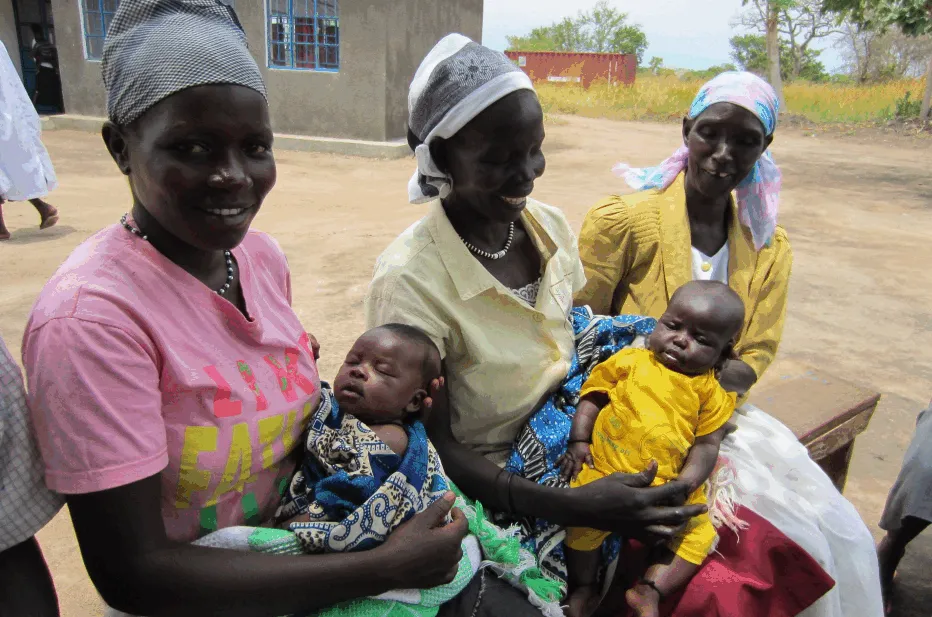UHCP supports South Sudan in building a resilient and equitable health system
Policy dialogues help align stakeholders and shape health strategies
Supports the Boma Health Initiative and community-level healthcare delivery
Provides technical and governance support to the Ministry of Health
Aims to reform health financing and reduce healthcare inequality
How the Universal Health Coverage Partnership (UHCP) Works in South Sudan
A Quick Recap of This Story
Building a Foundation for Health in Fragile Settings
South Sudan, a country facing profound challenges from years of conflict, displacement, and underdeveloped infrastructure, has found a critical ally in the Universal Health Coverage Partnership (UHCP). Established under the World Health Organization (WHO), UHCP operates in fragile and post-conflict settings like South Sudan to strengthen national health systems and advance the goal of Universal Health Coverage (UHC).
UHCP’s approach is not about temporary solutions. It seeks to empower countries to take ownership of their healthcare reform by embedding policy development within local leadership, supporting long-term planning, and helping governments prioritize health in national budgets and development agendas.
Strategic Policy Dialogue: Health Systems with Local Ownership
At the heart of UHCP’s operation in South Sudan is strategic policy dialogue—a structured, inclusive conversation between the Ministry of Health, technical experts, civil society, and development partners. These dialogues are critical because they build consensus around health priorities, harmonize donor efforts, and ensure that reform efforts reflect the real needs of the population.
In South Sudan, UHCP has supported the development of the National Health Policy and Strategic Plan, aligning it with regional and global goals. This process includes mapping out essential health services, determining workforce requirements, and defining financing models to improve access and equity.
Supporting the Boma Health Initiative
One of the most prominent collaborations between UHCP and South Sudan is the Boma Health Initiative (BHI)—a community-centered program that delivers essential health services directly to the grassroots level.
Through this program, UHCP assists in planning, training, and monitoring. Community health workers are recruited, trained, and deployed to hard-to-reach villages to provide immunizations, maternal and child health services, and health education. UHCP's role is to ensure the strategic planning and integration of BHI into the broader health system, ensuring sustainability and quality control.
Strengthening Governance and Accountability
UHCP doesn't just focus on healthcare delivery—it also works to improve governance structures within the health sector. It supports ministries and local authorities in setting up transparent mechanisms for decision-making, monitoring, and accountability. This includes the development of tools for health data collection, expenditure tracking, and citizen feedback.
In South Sudan, where donor dependence is high, UHCP ensures that external funding supports nationally defined priorities, and it pushes for the integration of external aid into a coordinated, government-led strategy.
Capacity Building and Technical Assistance

UHCP offers technical expertise and knowledge transfer to strengthen institutions. This means working closely with local planners and decision-makers to build in-house capacity for policy analysis, health financing, planning, and performance monitoring.
Workshops, fellowships, and in-country advisory support are all part of the package. The partnership brings in regional and global best practices but ensures they’re adapted to South Sudan’s unique context.
Health Financing: Making Care Affordable
One of the long-term goals of UHCP is to restructure health financing in a way that improves equity and reduces out-of-pocket expenses for citizens. In South Sudan, this involves supporting the development of national health insurance frameworks, resource mobilization strategies, and the integration of donor financing into sustainable structures.
UHCP works with South Sudan’s Ministry of Health and Ministry of Finance to explore and pilot financing models that work in low-resource settings, ensuring that essential services are not denied to the most vulnerable populations.
Collaboration Over Charity
A core tenet of UHCP’s philosophy is that countries should lead their health agendas. In South Sudan, this means building a collaborative ecosystem where national ministries, local government units, healthcare workers, and communities all have a role in shaping how healthcare is delivered.
This collaborative model reduces redundancy, improves impact, and helps align South Sudan’s healthcare reforms with broader national development strategies.
Future Outlook: Challenges and Commitment
Despite ongoing political instability and logistical barriers, UHCP continues to support South Sudan’s ambition to provide quality, accessible healthcare for all. The path to Universal Health Coverage is long and uncertain—but through consistent support, policy alignment, and homegrown leadership, the foundations are being laid.
The work of UHCP is not just about health—it is about nation-building. In South Sudan, it is a lifeline to a future where access to healthcare is not a privilege but a right.

0 comments
Be the first one to comment, but before that...
Here are some best practices for writing comments: